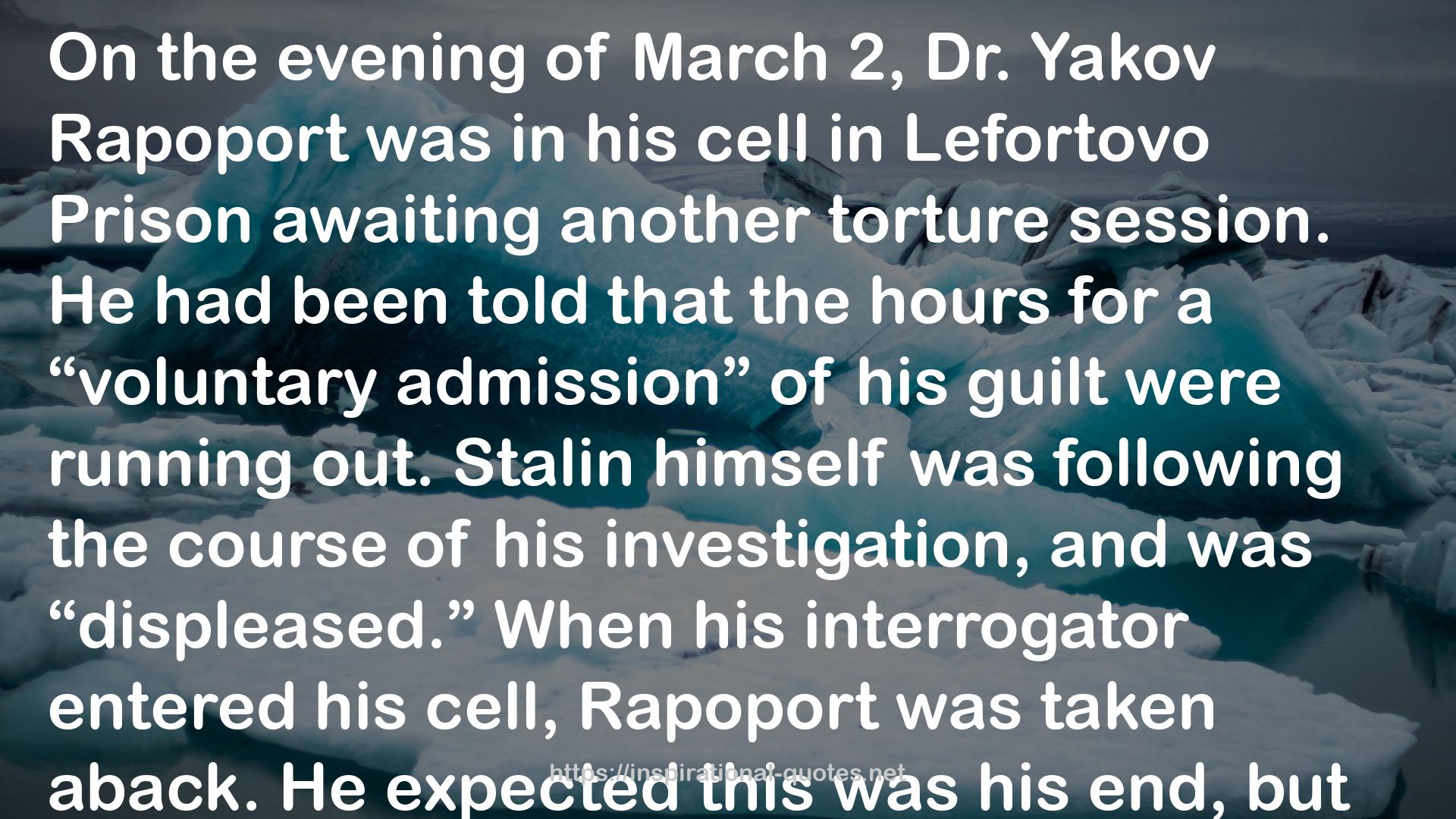" On the evening of March 2, Dr. Yakov Rapoport was in his cell in Lefortovo Prison awaiting another torture session. He had been told that the hours for a “voluntary admission” of his guilt were running out. Stalin himself was following the course of his investigation, and was “displeased.” When his interrogator entered his cell, Rapoport was taken aback. He expected this was his end, but his torturer told him he needed his expert opinion. Would the doctor tell him what “Cheyne-Stokes respiration” was? Presumably Stalin’s doctors had ventured this as their diagnosis. Rapoport replied that it was “spasmodic, interrupted breathing,” found in infants and adults suffering “lesions of the respiratory centers in the brain . . . as in brain tumours, cerebral haemorrhages, uremia, or severe arteriosclerosis.” Could someone with such a condition recover? his interrogator asked. “In the majority of cases, death is inevitable,” Rapoport replied.11 He was asked to recommend a Moscow specialist to attend such a patient. He named eight specialists but said that, unfortunately, they were all in prison. "
― Rosemary Sullivan , Stalin’s Daughter: The Extraordinary and Tumultuous Life of Svetlana Alliluyeva
